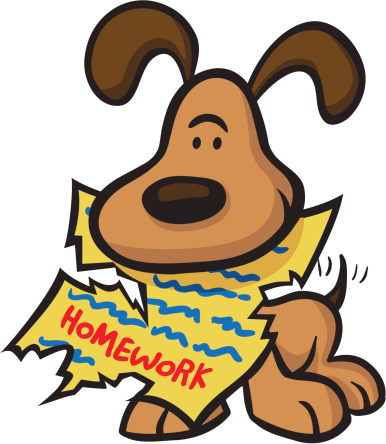Homework
What is due will be posted each week right here:
| Subject | Monday | Tuesday | Wednesday | Thursday | Friday |
| Reading | |||||
| Writing | |||||
| Science | |||||
| Math |

I allow them time to organize themselves, putting their backpacks and belongings in their cubbies on the side of the room. During this time, I have an activity for all students to do: this is typically a craft or worksheet reviewing material that was assigned for homework.
Throughout the day, we have our core curriculum classes (Math, Reading, Writing Workshop, Social Studies, Science)
8:00-8:25 Morning Routine
8:25-9:15 Reading
9:15-10:05 Specials
10:05-10:20 Snack/Gator Goals/Would You Rather
10:20-11:45 Writing
11:45-12:30 Lunch/Recess
12:30-1:30 Math
1:30-2:15 Social Studies/Science
2:15-2:45 D.E.B
2:45-2:55 Wrap-Up
2:55 DISMISSAL
Grading Scale
N - Needs Improvement
M - Meets
E - Exceeds
|
Core Class Curriculum Reading: Your child may be able to: Social Studies: Your child may be able to: |
Math: Your child may be able to: |
More Curriculums for First Grade!
|
Social Development during First Grade!
Your child will go through many different social changes, and that is completely normal! Please Visit This Website For More Information: |
Does Your Child Have a Low Incidence Disability? Have any questions?
Please take a look at these helpful and informative websites for development and visit my parent tips page!
http://www.slideshare.net/sander60tx/low-incidence-disabilities
https://sites.google.com/site/inclusionresourcenotebook/disability-areas/low-incidence-disabilities
http://theautismwars.blogspot.com/
Other Curriculums That Are Taught In First Grade!
- Adapted Curriculum
- Depending on the needs of your student, I will happily work with the special education teacher and parents in order to create a curriculum that fits the needs of the student.
- This can be for any curriculum that is being taught during the year.
- BoardMarker
- This is a curriculum that I will be using during the year, and it is one that all students can use!
- For more information please click here: https://www.boardmakeronline.com
Special Education: "Targets"
Social and Emotional Learning (SEL)
- Goal 1: Develop self-awareness and self-management skills to achieve school and life success.
- 1A.1a. Recognize and accurately label emotions and how they are linked to behavior.
- Students will identify and label their emotions and feelings and how it linked to behavior, such as their own behavior.
- 1A.1b. Demonstrate control of impulsive behavior
- Students will learn self-control impulsive behavior strategies.
2. Goal 2: Use social-awareness and interpersonal skills to establish and maintain positive relationships.
- 2A.1a. Recognize that others may experience situations differently from oneself
- Students will learn more about empathy and sympathy.
- 2A.1b. Use listening skills to identify the feelings and perspectives of others.
- To improve effective communication with other peers and staff members, students will learn more strategies to improve listening skills to identify the feelings and perspectives of others.
3. Goal 3: Demonstrate decision-making skills and responsible behaviors in personal, school, and community contexts.
- 3A.1a. Explain why unprovoked acts that hurt others are wrong.
- In the classroom, we will have mini lessons about how and why unprovoked acts, or inappropriate acts, hurts peers and staff members are wrong and ways to decrease unprovoked acts by learning new strategies how of to effectively express how one may feel and act.
- 3A.1b. Identify social norms and safety considerations that guide behavior.
- There will be classroom rules and expectations in my class that students and I will follow. Over the school year, students and I will go over the rules in the classroom and effectively decide if we need to revise the classroom rules and add new rules.
www.isbe.state.il.us/ils/social_emotional/standards.htm
Communication
- Students will be given role play scenarios to enhance communication skills
- Students will be requried to have a journal to express their feelings rationally
- Before lunch and the end of school, students will write a one-to-two sentences of how they feel
- Throughout the week, I will have a mini five minute conference with each student to discuss their classroom performance and discuss how to imporve or enhance skills
- Will have three-to-four team building activities such as compete in small group games to improve on effective communication skills
Self-Advocacy:
- Students will be given weekly "tough decisions" scenarios of what they would do
- Go over signaling devices and symbols to communicate students need help
- Self-reflection sentences of what they are doing well, what to improve, and how will they will improve
- Weekly classroom debates of a given scenario: bullying, responsiblitiy, truthworthiness, and citizenship
Upcoming Student Projects:
This Trimester--->
My Skeleton
Where Do I Come From?
My Favorite Thing
Small Moment Story
Websites
Math:
https://www-k6.thinkcentral.com
Reading:
http://hosted36.renlearn.com/216880/homeconnect
-
Accelerated Reader Bookfinder
-
AR: Renaissance Home Connect
https://hosted130.renlearn.com/176831/HomeConnect/Login.aspx
-
Bedtime Math
-
BrainPOP
-
Discovery Education
http://www.discoveryeducation.com/students/index.cfm?campaign=flyout_students
-
IXL Math
-
Lexia
-
Library Catalog
-
Math Playground
-
OverDrive Help
-
OverDrive Login
https://woodridgeil.libraryreserve.com/10/45/en/SignIn.htm?url=Default.htm
-
Rosetta Stone
-
Seesaw
-
Study Island
-
TenMarks Math
-
TumbleBooks
-
Wixie
-
World Book
http://worldbookonline.com/wb/products?ed=all&gr=Welcome+Woodridge+Elem+Sch+District+68
-
XtraMath
-
Zing!